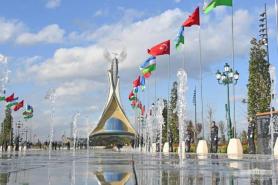
[Arthur I. Cyr]
KENOSHA -- "Disarmament … is a continuing imperative."
That public statement is not from an ideologue on the left, but rather from President Dwight D. Eisenhower in his Farewell Address. He delivered the address to the nation early in 1961, while preparing to leave office.
President Joe Biden raised arms control to a top policy priority, but that is now unraveling. In January 2021, the New START Treaty with Russia was extended for five years. The agreement, which was about to expire, limits nuclear warheads on each side to 1550, plus limitations on missiles and bombers.
However, last November talks on inspections were suddenly suspended. Russia has announced the treaty is now in jeopardy. In January, Russia’s Deputy Foreign Minister Sergei Rablov denounced U.S. efforts to impose “strategic defeat” on Moscow in Ukraine.
The Trump administration experienced frustrations with arms control. The initial emphasis on ending North Korea’s nuclear weapons program was unsuccessful. In August 2019, the administration withdrew from the Intermediate Range Nuclear Forces (INF) Treaty, complaining of violations by Russia.
The Obama administration emphasized Nuclear Summits involving large numbers of nations and international organizations. The 2016 Nuclear Summit in Washington D.C. concluded with a formal statement underscoring nuclear weapons control.
Unfortunately, Russia did not participate. That reflected strained relations with the U.S. and other nations following the annexation of Crimea.
Nonetheless, the major conference reinforced the important, tangible UN framework to coordinate national efforts. The first Nuclear Summit took place in 2010, also in Washington D.C.
In 1986, during a summit meeting in Iceland, Soviet General Secretary Mikhail Gorbachev and President Ronald Reagan surprised their staffs as well as the world by pledging the abolition of all nuclear weapons. That utopian vision fostered a practical result: the INF Treaty sign in 1987.
Reductions are desirable, but efforts to outlaw all nuclear weapons are fundamentally flawed. Destroying all known nuclear weapons would provide a decisive advantage to any power which decided – openly or secretly – to hold back even a few. Verification remains vexing.
Another benchmark in the history of nuclear weapons, arms control, and the Cold War occurred in 1972 when the Strategic Arms Limitation Talks (SALT) led to treaties between the U.S. and the Soviet Union limiting missile systems. A second round of negotiations resulted in a follow-on agreement in 1979, but the U.S. Senate did not ratify the treaty, in reaction to the Soviet invasion of Afghanistan that year.
After the Cuban Missile Crisis of October 1962, which concluded when the Soviet Union withdrew nuclear weapons from the island, President John F. Kennedy’s political standing rose considerably. During the Christmas season, JFK held a televised discussion with network correspondents. He gave emphasis on a world soon to contain a number of nuclear powers.
In fact, proliferation has moved much more slowly than anticipated at the time. Various nuclear-capable nations, including our close ally Canada, have decided that any conceivable benefits are simply not worth the expense and risks.
Additionally, the International Atomic Energy Agency, an initiative of President Eisenhower, facilitates peaceful nuclear energy and provides a long-term drag on military pressures to get the Bomb. Ike, always comprehensive in vision, also achieved the demilitarization of Antarctica.
International commitment to arms control is firmly established. Russia today clearly is on the defensive.
Military threats are not only external. Eisenhower closed his Farewell Address by warning of the dangers inherent in our massive arms establishment, which he termed “the Military-Industrial Complex.”
Copyright ⓒ Aju Press All rights reserved.




